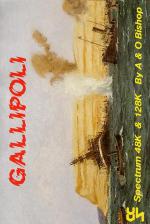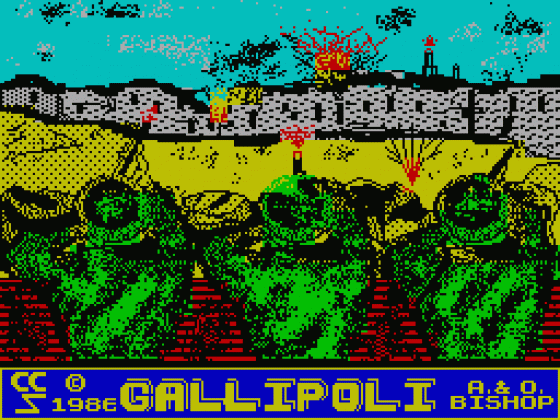Other Reviews Of Gallipoli For The Spectrum 48K/128K
Gallipoli (Cases)
A review by Sean Masterson (Crash)
Gallipoli (Cases)
A review by Gwyn Hughes (Your Sinclair)
Wargames (Cases)
CCS has released three new challenges for Spectrum Generals. Tony Hetherington reports from the front
Gallipoli (Cases Computer Simulations)
A review


 3rd December 1986
3rd December 1986









